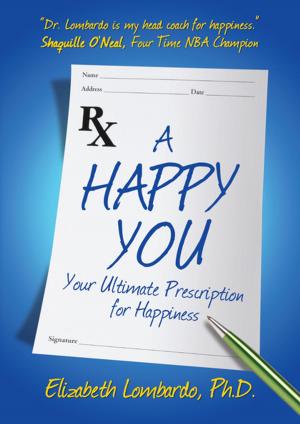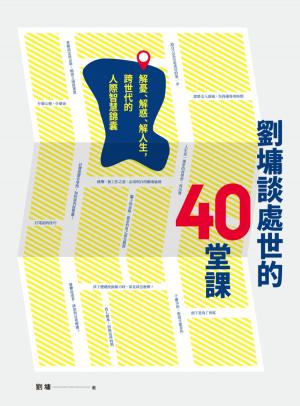Coping with the Human Predicament: Living an Examined, a Disciplined and a Charitable Life
Nonfiction, Health & Well Being, Self Help, Self Improvement| Author: | Douglas Patterson | ISBN: | 9781301866335 |
| Publisher: | Douglas Patterson | Publication: | January 23, 2013 |
| Imprint: | Smashwords Edition | Language: | English |
| Author: | Douglas Patterson |
| ISBN: | 9781301866335 |
| Publisher: | Douglas Patterson |
| Publication: | January 23, 2013 |
| Imprint: | Smashwords Edition |
| Language: | English |
Americans during the first decades of the 21st century have enjoyed a very high standard of living; even though we may vary greatly in wealth, few people in this country actually go hungry. Most enjoy adequate nutrition and shelter and medical care and transportation and communication services; many live in more luxurious environs than the kings of yore did in their castles.
Ironically, many of us have not become happier or healthier in equal measure to our increase in wealth. In fact, many at all income levels appear to have become downright unhealthy - both physically and mentally - in the midst of plenty.
Jesus’ admonition that “Man does not live by bread alone” was uttered in a religious context; but it is an accurate observation when viewed on a secular level as well. Good living requires that we satisfy our needs on more than a survival level.
Many people do deal with their problems through their religions. Their belief in a loving Heavenly Father and eternal life gives their lives meaning and purpose and dignity. At the same time, they like their less religious friends must deal on their own with the trials and tribulations of temporal living. Some members of each group live much more satisfactory lives than others.
My purpose in writing this book is to review the thoughts of many great thinkers concerning how one best copes with the problems of temporal living. I have boiled down my key points in the book’s sub-title: Living an examined, a disciplined and a charitable life.
Having spent my life in the field of education, I am convinced that well-educated (not necessarily long schooled) people generally deal better with life’s vicissitudes than those with less education. If a person has read widely and has participated positively in the affairs of his community, he is likely to have developed the breadth and the flexibility that equips him to embrace life and to deal intelligently and effectively with its ups and down.
One who has developed sound critical thinking skills is better prepared to deal with the flood of information and opinions that washes over us each day than is his less reflective brother. He is unlikely to blur the lines between fact and fancy. While enjoying the fruits of our very rich imaginations, he does not treat metaphors as objective descriptions of reality.
Throughout history, philosophers have advised self-discipline as one of the most important attributes of am effectove person. Those who control their urges and appetites rather than allowing them to take over their lives enjoy a freedom of thought and action not experienced by those self-indulgent people who continually give in to their impulses.
Even though food is readily available, many Americans still eat as if famine were right around the corner. Our automobiles whisk us around in comfort; but they have deprived us of the exercise that we need to remain physically fit. Even though we may own a plethora of material things, advertising whets our appetites to acquire more things that we may not need and perhaps cannot afford.
Those people who get the most out of life have somehow escaped from narrow egotism and have learned to care for others. They have developed the ability to love their neighbors as themselves.
In this book, which was written with teenagers and young adults in mind, I hope to reinforce some very basic insights concerning how one leads productive and happy temporal life – whether he expects to awaken after death or not.
Americans during the first decades of the 21st century have enjoyed a very high standard of living; even though we may vary greatly in wealth, few people in this country actually go hungry. Most enjoy adequate nutrition and shelter and medical care and transportation and communication services; many live in more luxurious environs than the kings of yore did in their castles.
Ironically, many of us have not become happier or healthier in equal measure to our increase in wealth. In fact, many at all income levels appear to have become downright unhealthy - both physically and mentally - in the midst of plenty.
Jesus’ admonition that “Man does not live by bread alone” was uttered in a religious context; but it is an accurate observation when viewed on a secular level as well. Good living requires that we satisfy our needs on more than a survival level.
Many people do deal with their problems through their religions. Their belief in a loving Heavenly Father and eternal life gives their lives meaning and purpose and dignity. At the same time, they like their less religious friends must deal on their own with the trials and tribulations of temporal living. Some members of each group live much more satisfactory lives than others.
My purpose in writing this book is to review the thoughts of many great thinkers concerning how one best copes with the problems of temporal living. I have boiled down my key points in the book’s sub-title: Living an examined, a disciplined and a charitable life.
Having spent my life in the field of education, I am convinced that well-educated (not necessarily long schooled) people generally deal better with life’s vicissitudes than those with less education. If a person has read widely and has participated positively in the affairs of his community, he is likely to have developed the breadth and the flexibility that equips him to embrace life and to deal intelligently and effectively with its ups and down.
One who has developed sound critical thinking skills is better prepared to deal with the flood of information and opinions that washes over us each day than is his less reflective brother. He is unlikely to blur the lines between fact and fancy. While enjoying the fruits of our very rich imaginations, he does not treat metaphors as objective descriptions of reality.
Throughout history, philosophers have advised self-discipline as one of the most important attributes of am effectove person. Those who control their urges and appetites rather than allowing them to take over their lives enjoy a freedom of thought and action not experienced by those self-indulgent people who continually give in to their impulses.
Even though food is readily available, many Americans still eat as if famine were right around the corner. Our automobiles whisk us around in comfort; but they have deprived us of the exercise that we need to remain physically fit. Even though we may own a plethora of material things, advertising whets our appetites to acquire more things that we may not need and perhaps cannot afford.
Those people who get the most out of life have somehow escaped from narrow egotism and have learned to care for others. They have developed the ability to love their neighbors as themselves.
In this book, which was written with teenagers and young adults in mind, I hope to reinforce some very basic insights concerning how one leads productive and happy temporal life – whether he expects to awaken after death or not.















